Ear Correction Surgery
Improve aesthetics of ear
A surgery performed to improve the shape, position or proportion of the external ear.
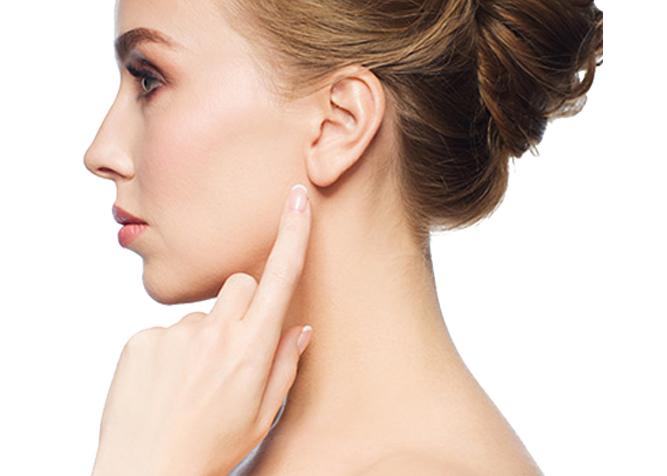
A surgery performed to improve the shape, position or proportion of the external ear is called Ear Correction Surgery or Otoplasty. It can correct the defect in the structure of the external ear present from birth or which becomes apparent with increasing age. This surgery mainly addresses the cosmetic concerns of men and women who are unhappy with their ear shape which is never associated with hearing loss or difficulty. It also creates and gives a more natural shape to the ear while bringing proportion and balance to facial profile.
This procedure can also be used to treat the misshapen ears caused by injury or infection. If deformed ears or protruding ears or disproportionate ears are a matter of concern for you, you should opt for this surgery.
Ear Correction surgery can treat many issues of the ear. Most notable and common cosmetic deformities are:
- Protruding/prominent ears-It is quite common in general population and lots of men and women opt for surgery for this condition. The ears are usually around 2 cms and at angle of angle of less than 30 degress from the side of the head. Anything more than that will make ears look 'protrude' out of the head. However, having ears more prominent than this can be bothersome for a lot of men and women and can cause low self-esteem, embarrassment and low confidence in them.
- Overly large ears (Macrotia) - which requires ear reduction.
- Cup ear/ small ear deformities
- Ear lobule deformities can also be corrected by surgery.
- Abnormal shape of ear due to injury, burn or a defect from birth
Discussions during Surgery consultation should include
Cosmetic correction of prominent ear is not always necessary and done. Some minor irregularities usually resolve without intervention. Prominent ears may run in families, but they often occur randomly also. If noticed by parents in infancy period, the correction can be done by ear moulding or reshaping with the help of splints, but this can be only attempted in the first 8 to 10 weeks of life and works up to when the child is 6 months old. After the age of 3- 6 months of the child, surgery is the only option for cosmetic correction. The suitable time for this surgery is when the child is 8-10 years age and any age after that but should not be done if the age is less than 8 years.
- About what exact look are you expecting after the surgery.
- About your facial profile with respect to the surgery
- Any previous medical history or surgery.
- Any drug allergies.
- Current medical conditions, any supplements or medication.
- Alcohol, tobacco intake
- Any other surgery if required along with ear correction surgery with reference to your face.
A candidate opting for Ear Surgery should fill up these criteria for better results
For Children
- They should be of minimum 8-10 years age or when the child's ear has cartilage is stable enough for correction
- Should be healthy, without chronic ear infection.
- Follow instructions well and should be cooperative
- They should not have objections regarding the surgery and should be able to communicate their feelings.
For Adults
- You shouldbe a healthy person with no chronic medical conditions or chronic ear infections
- You should preferably be a non-smoker.
- You should really know well about what surgery you are planning to undergo
- You should be motivated enough to undergo the procedure.
- You should have realistic expectations.
Ear surgeon after consultation may also
- Access your general health status and present medical conditions, if any.
- Take photographs.
- Discuss the risks and complications of the surgery.
- Discuss the options of surgery for you.
- Inform and discuss if any other supplemental procedure is required for best results.
- Discuss about how the outcomes of the surgery will be
Questions to be asked with your surgeon about your surgery
- Am I a good candidate for the procedure?
- How long do I have to stay at the centre?
- What is the procedure?
- Will there be scars post-surgery?
- How long is the recovery period?
- When can I return to work and daily routines?
Preparations to be done for the surgery
- Get the tests done which are prescribed by Dr Amit Agarwal.
- Monitor your current medication after discussing it with your doctor.
- Stop smoking at least two weeks prior to surgery.
- Do not take any anti-inflammatory drugs, aspirin or any herbal supplements as they can aggravate bleeding.
- All pre surgical work up investigations should be shown to the operating surgeon and the anaesthetist, and we will evaluate your fitness for the surgery. You will be given date for the surgery only after you are declared fit for the procedure.
- Admission will be done on the same day at the centre
- Written consent form will be signed explaining the procedure after the admission.
- Nil per oral for minimum of 5-6 hours before the planned procedure.
- Marking for the surgery will be done before surgery.
Ear Surgery procedure includes
The procedure steps are as follows
- First step includes comforting you during your surgical procedure which is done by either intravenous sedation or general anaesthesia. The choice will be recommended to you by Dr Amit Agarwal.
- In second step, the incision is made on the back of the ear and further surgery is performed. If or when required, they are made on front side of the ear but are finally hidden under the folds of the ear. Correction of prominent ears - Antihelical Fold is created or increased which is present just inside the rim of the ear and enlarged conchal cartilage is reduced (the largest and deepest concavity of the external ear). Large ear- ear reduction is done. Lobule deformities- ear lobule is corrected according to the deformity from behind the ear incisions. Cup ear- if minor correction is required then it should be done as surgery for prominent ear. If cup deformity is more severe, then cartilage would be required from the chest and correction would be done in stages.
- Incisions are finally closed with the help of the external stitches.
- Fifth step includes observing the results of the surgery. As it's an totally external surgery, the results are immediately visible and more prominent as the sutures healand ears are back in their natural form. The surgical scars are well hidden behind the ear or in the natural creases of the ear.
Recovery after the surgery
After the surgery, bandages will be placed and there can be discomfort with these, which is normal after the surgery. There can be itchiness under the bandages. Provided many discomforts, the bandages should be kept intact otherwise it can create complication which further can lead to a secondary surgery.
The sutures will be removed after a week of the surgery. You can be discharged on the same day or next day after surgery. There can be swelling and bruising of the ear region which usually subsides in a week.
- Sutures are non-absorbable; they would be removed after a week. Dr Amit Agarwal does not prefer to be use absorbable sutures for ear correction surgery. But on request, absorbable sutures can be placed which does not require to be taken off
- Wash your hair after 2 weeks of surgery.
- In the days following surgery, there will be pain which can be subsided by the pain killers given by Dr Amit Agarwal.
- There should be no vigorous exercises after the surgery until the surgeon recommends. You can start exercising after four to six weeks post-surgery and contact exercises after 12- 15 weeks.
- Always keep your head elevated over pillows while lying down on bed or preferably by placing a folded mattress or quilt under the bedding. Ice fomentation can be done.
- Don't sleep over your ears and avoid scratching or touching your ears.
- Soreness might last for few weeks.
- You will be made to walk few hours post-surgery or the very following day, depending on your will and wish.
- You will have to wear an elastic headband for another 6 weeks minimum at night
- You can return to work depending on your will power and the type of work required between 6 days.
- You can return to your normal lifestyle after 2 weeks of surgery.
There will be some specific instructions given to you by Dr Amit Agarwal which includes
- How to take care of the surgical site.
- About the follow up dates.
- How to take the medications or application of creams which can help in faster healing and recovery. There are not many medications tough.
Risk and complications post-surgery
Like every surgery, Ear correction surgery also involves some risks and complications which include
- The surgery is usually performed under General anaesthesia. On request it can be done under Local anaesthesia and iv sedation. The Risks related to general anaesthesia are very rare. General Anaesthesia is very safe in present times and with best machines and a qualified anaesthetist, chances of encountering any complication is less than 0.1 percent in a healthy individual. We at Kayakriti Plastic Surgery and Dental Centre are equipped with world class anaesthesia workstation, other equipments and two very qualified intensivists for the surgical procedures to be very safe and smooth.
- Rare chances of Infection which usually subsides with good antibiotics.
- There can be persistent swelling and bruising, discomfort in the surgical area which reduces with time.
- Numbness or sensory loss in the operated area which gets better with time.
- If you have a poor blood supply, the healing can be poor giving rise to wound healing problems (seen more in smokers, diabetes, hypothyroidism and in persons with multiple diseases).
- Rare chances of asymmetry of the ears, scar abnormalities. Little overcorrection is always done in ear correction surgery.
- Extrusion of sutures- where the stitches securing the shape of your ears come to the surface of the skin and have to be removed and reapplied to maintain the shape.
- Possibility of revision surgery if the results don't meet your desired expectations
These are the risks and possible complication which should be discussed by you with Dr Amit Agarwal before the procedure.
The total benefits of Ear correction surgery will be seen after the bandages are removed and ears are back to their natural form.
You can return to your normal lifestyle after two weeks of surgery. You should always follow a healthy lifestyle to maintain your profile and confidence.
Do's and don't
- You should always discuss any previous surgery or medical conditions without hesitation.
- You should always keep the bandage intact as it can ruin the result of the surgery if misplaced and gives proper shape if put properly.
- You should immediately consult your doctor if you have any complication.
- You should always maintain a healthy lifestyle for best and prolonged results.
Frequently Asked Questions
If you have protruding ears or your ears are not in proper shape or are not in proportion with your head and face, then you are a suitable candidate for the surgery.
The visibility of scars will fade with time but they will be permanent. The scars of the surgery are on the back of the ear most of the times.
This is an external surgery which is done to give a better appearance to ears or to correct any deformity of external ear. This has nothing to do with the internal functioning of your ear.
You can get discharged on the same day of the surgery.
The results of this procedure visible immediately as it's an external surgery but are more prominently visible after the swelling and bruising subsides.
If you follow doctor's instructions, and maintain a healthy lifestyle, the percentage of risks and complications involved is 3 to 5%.
Quitting smoking is a perfect solution even without surgery as it involves many health risks, but it's totally up to you wish that you want to quit or not. But you should surely stop smoking at least 2 weeks before the surgery.
Ear Correction Surgery Images
Indivisual results may vary from person to person.
These pictures are shown for the purpose of education only.


Know your surgeon better
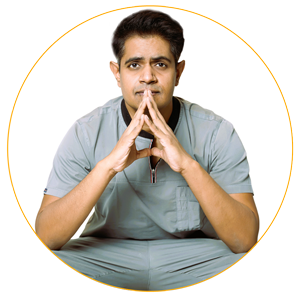
Best plastic surgeon, Dr. Amit Agarwal is an American Board Certified, extensively trained, and best Plastic & Aesthetic surgeon in Lucknow. He is the Chief Plastic Surgeon heading the Department of Plastic, Microvascular, and Craniofacial surgery at Vivekananda Polyclinic and Institute of Medical Sciences, Lucknow, U.P, India. He maintains a busy practice at Avadh and Nishat Hospital and his own center - Kayakriti Plastic Surgery & Dental Center. He was formerly a Consultant in the Department of Plastic Surgery and Burns at the prestigious SGPGI, Lucknow.
MS, DNB (General Surgery) MCh, DNB (Plastic Surgery),
MNAMS, FACS, FICS, FRCS (Edinburgh, UK)
His Credentials
Three pillars of kayakriti
Privacy
We believe your experience with us should be comfortable and hassle-free to make it one of your best lifetime experiences for yours. We, here at the clinic, take full precautions to maintain your privacy in any manner. We also provide a staff who will receive you from the gate and take you to the chamber directly if you demand.
Trust
Our Surgeon is highly qualified and internationally certified with a team of skilled staff to perform any surgical or non-surgical treatment on your body.
Safety
When you plan to undergo any surgery you should always keep in mind that it's your body and it's a surgery. We, here always keep your safety a priority and will never recommend you to undergo any such procedure which is not safe for you. We also provide you with a detailed description of the complications which may occur after the surgery during the consultation as it's a surgical procedure so there may be some complications depending on the way your body reacts.
Kayakriti in news



Frequently Asked Questions
If you have flat or small breast and you want to improve your breast and hip contour ratio then you are a good candidate for it. The answer will be best provided after the first consultation with Dr Amit Agarwal.
Acute pain will be there for almost a week which gradually reduces and there will be soreness and swelling which may take up to 3 weeks to subside.
You can join your work and daily routines after a week of the procedure and can start exercising after 3 weeks of it.
Yes, you have to wear it round the clock unless we suggest you to remove it.
This surgery does not affect the ducts or the areas of the breast involved in milk production. Thus, it does not affect the breast feeding.
This surgery does not affect the ducts or the areas of the breast involved in milk production. Thus, it does not affect the breast feeding.












Kayakriti Plastic Surgery & Dental Center
D-43, Near Punjab National Bank, Rajajipuram, Lucknow, Uttar Pradesh - 226017, India
Phone No. +919695940009, +919695940006
Map Location

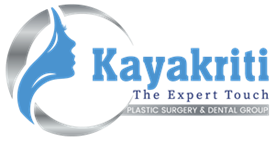


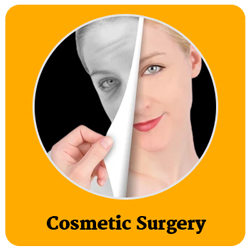
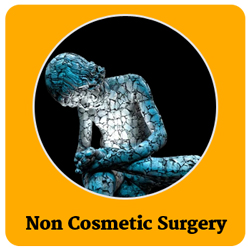























Social Media Presence